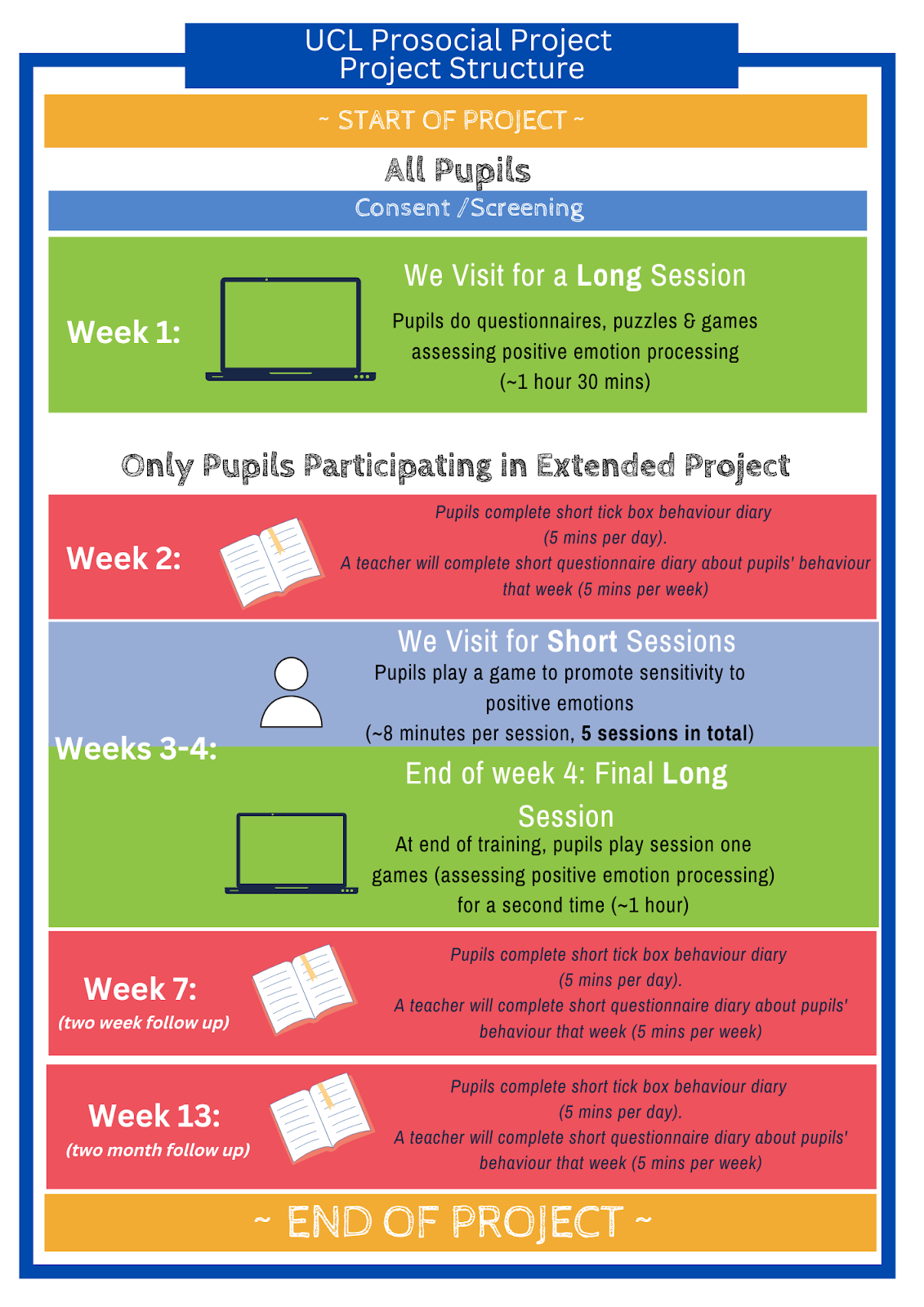Why are we carrying out this project?

As teenagers grow and develop, they are going through lots of changes. They are making new friends, facing new social situations, and becoming more independent. Teens can have very hard moments, take risks and push limits, and show some difficult behaviour. This is often nothing to worry about, and many teens grow out of this with support from their parents, carers, and teachers. However, sometimes very difficult behaviour can be a sign of more serious behaviour problems.
According to the 2017 national survey of the Mental Health of Children and Young People in England (MHCYP), around 6% of 11-16 year olds (predominantly boys) experience diagnosable levels of conduct problems. Conduct problems can be very distressing for young people themselves, for their families, and for their educators. In the long term, severe conduct problems are associated with lower educational attainment, addiction, and involvement in the criminal justice system.
However, young people are all different and not everyone who displays conduct problems in adolescence will continue to have behaviour problems when they are older or experience poor life outcomes. Our team at the UCL Developmental Risk and Resilience Unit carries out research projects that aim to identify individual differences among adolescents with conduct problems in order to support more effective prevention and treatment.
What is our project about?

In this project we are especially interested in gaining a better understanding of how teenage boys think about positive signals from others (such as happy faces and laughter). We are interested in this because responding to and caring about positive signals from others is important in building and maintaining relationships with other people.
We are also interested in whether whether helping increase sensitivity to positive social signals can reduce difficult behaviour and increase kind/helpful behaviour (‘prosocial’ behaviours).
If this project is successful, we hope to eventually be able to offer the games involved to schools to be used as part of behaviour management strategies in a way that is sustainable and requires no additional resources.
Please find more information about the project and how it runs below. If you have any questions or are interested in being involved, please contact us!
For a link to resources for parents and adolescents impacted by disruptive behaviours, please see our ‘Background and Further Resources’ tab.
More Detailed Project Information

Whom are we researching?
We are interested in working with boys aged 11-16 with a wide range of behaviours. We are unfortunately not able to include individuals with autism spectrum disorder, although individuals with attention deficit hyperactivity disorder are welcomed.

What would the pupils need to do?
Our project involves some brief questionnaires, and several short games. During these games, students can win up to £10 worth of Amazon vouchers. The whole testing session takes around two school lessons, and it is typically enjoyed. Some children will also be invited to a longer running ‘extended’ project.
In this extended project, pupils will be invited to take part in a series of seven research sessions over the school term. The majority of these sessions will be very short (8 minutes) and will involve playing a brief computer game designed to promote attention to positive emotions. At the beginning and end of the project, pupils will also take part in longer sessions assessing their emotion processing more broadly. These sessions will take up to two school lessons, and will involve computer games, questionnaires, and problem-solving puzzles. Finally, pupils will be asked to complete short diaries about their behaviour during the study.
Pupils participating in the extended project will receive Amazon vouchers for their participation, totalling up to £40 for the duration of the project. Participation is completely voluntary, even if the child has caregiver consent.

What would your school need to do?
At the beginning of the project, we politely request that teachers complete a brief questionnaire about each student to tell us about their behaviour at school. At three timepoints during the project, we will also ask one teacher to supervise pupils completing a behaviour diary and to complete a very brief weekly behaviour diary questionnaire about the participating pupils.We thank schools/school staff with an honorarium of £25 per young person for completion of all behaviour diaries/questionnaires.
For our project sessions, we will require a small space in which to work with students.

What do parents & caregivers need to do?
When the eligible students have been identified by the school, we ask the school to send our consent forms and information sheets to parents via email for them to complete. During the project we will also ask the school to send parents a questionnaire to complete at home.
For our project sessions, we will require a small space in which to work with students.
Example Project Schedule:

